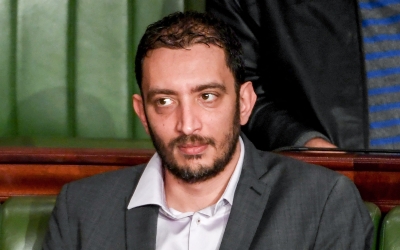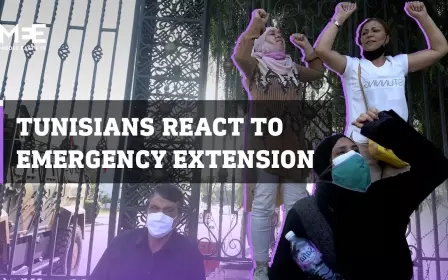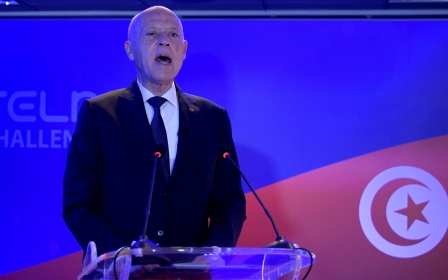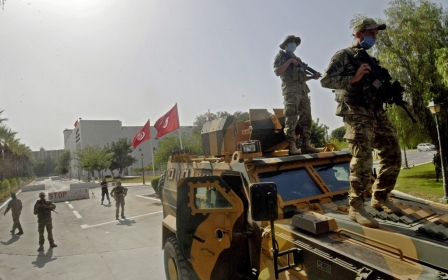Tunisia coup: Saied 'plans to change political system, suspend constitution'

Tunisian President Kais Saied is planning to suspend the constitution and call a referendum to amend the political system, according to one of his senior advisors.
Saied's move more than six weeks ago to suspend parliament and dismiss the prime minister has triggered political turmoil and been branded a "constitutional coup" by many political forces in the country.
In May, Middle East Eye revealed a secret document was being circulated recommending Saied invoke Article 80 of the constitution and seize control of the country, citing emergency powers.
'This system cannot continue ... changing the system means changing the constitution through a referendum, perhaps ... the referendum requires logistical preparation'
- Walid Hajjem, Saied adviser
In late July, Saied did exactly that, saying the coronavirus pandemic and the economic situation had become so dire that he needed to freeze parliament and dismiss the government, as well as launch an anti-corruption drive.
Hichem Mechichi, his dismissed prime minister, was detained and beaten by security forces after being told that he would be replaced, sources told MEE. Mechichi made no public appearance for 10 days after Saied's announcement.
Last month, Saied extended the indefinite suspension of parliament, calling the body a "threat to the state".
So far, Saied has not presented a roadmap for his plan, triggering fears of a return to authoritarian rule in the country. He retains widespread popular support, however, particularly with the youth.
"This system cannot continue... changing the system means changing the constitution through a referendum, perhaps... the referendum requires logistical preparation," Walid Hajjem, an adviser to Saied, told Reuters on Thursday.
Hajjem said Saied is in the final stage of a plan to change the system via a referendum, and that details will be announced soon.
'No to wrong solutions'
The revelation comes amid local and international calls on Saied to restore democratic rule. On Monday, the G7 group of advanced economies urged him to appoint a new head of government and "return to a constitutional order".
"We urge a swift return to a constitutional order, in which an elected parliament plays a significant role," the statement said.
"We underline the urgent need to appoint a new head of government to form a capable government able to address the immediate economic and health crises facing Tunisia."
Meanwhile, reports of a possible change of constitution have been met with widespread criticism among Tunisian politicians.
Mohamed Abbou, a politician known for his support of the president and his use of article 80 of the constitution, strongly criticised the idea of suspending the constitution.
"No to wrong solutions, and no to amending the constitution outside the constitution," he wrote on Facebook.
"May God protect Tunisia from the return of corrupt rule, from adventures and from wrong ways based on a wrong reading of reality. The current constitution is not the imminent danger."
Ennahda MP Neji Jmal described the intention to change the political system as an indication that Saied is "a traitorous liar".
The Democratic Current party, which is pro-Saied, has also condemned Hajjem's pronouncements to Reuters. In an official statement on Thursday, the party said it "rejects individual attempts to change the social contract and to use the legitimate popular anger to impose political choices that do not enjoy consensus".
Middle East Eye propose une couverture et une analyse indépendantes et incomparables du Moyen-Orient, de l’Afrique du Nord et d’autres régions du monde. Pour en savoir plus sur la reprise de ce contenu et les frais qui s’appliquent, veuillez remplir ce formulaire [en anglais]. Pour en savoir plus sur MEE, cliquez ici [en anglais].





